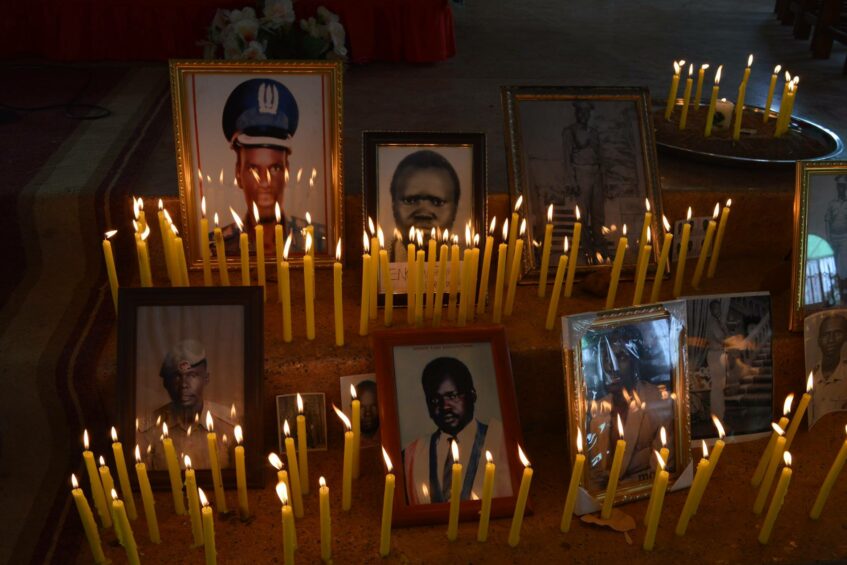
Some of photos of those who were killed in 1992 Juba Massacre - Courtesy
Some widows and orphans of the Juba Massacre of 1992 say South Sudan and Sudan are yet to give them answers on the disappearance of their loved ones who were killed 30 years ago.
On June 6, 1992, the Sudanese government of former President Omar el-Bashir by then rounded up more than 300 intellectuals in Juba for allegedly collaborating with the SPLA/SPLM under Dr. John Garang de Mabior.
Some of them were civil servants, traders, soldiers, prison wardens, and police officers under the then Khartoum regime.
They were arrested by the Sudanese military intelligence officers and soldiers and executed.
According to the Juba Massacre of 1992 Widows and Orphans Association, they previously petitioned the then Vice President of Southern Sudan after the 2005 Comprehensive Peace Agreement seeking answers about where their beloved one.
The Association said they also petitioned the then Governor of Central Equatoria State Clement Wani Konga.
They also requested a group of Bishops in the country to help pressure the government to give answers, but all the efforts were not responded to.
Fidensia Charles Ladu, the Chairperson of the Juba Massacre of 1992 Widows and Orphans Association decries why the cries are not recognized by the authorities.
“People are not recognizing us and there is no help from the government because they were the ones that came up with this association,” said the chairperson of the association.
“They will get answers about what happened to their disappeared loved ones but it is now 30 years I am telling you. There is no recognition, there is nothing given to them,
“We are now left with like 50 something and we have decided to commemorate this day and to honor this person.”
The 1992 Juba Massacre is marked every year on June 6 to remember those tortured and eventually killed by the then Sudanese government.
Fidensia described how the day came to existence.
“June 6 memorial comes from an event that took place in 1992 in Juba when the SPLA tried to enter the Juba, of course, the collaboration of some members arranged with the SPLA to come and take over Juba,” said Fidensia.
“The trial was done two times, the first one was on the 6th of June, and the second time was on the 7th of June. But the two trials failed, they entered [SPLA] Juba and they couldn’t stay for long, they [SPLA] stayed for some days then they [SPLA] withdraw and went back,
“It seems like the arrangement failed for them [SPLA] to come and take over Juba, then after that, the Bashir’s regime reacted, taking people randomly, arresting people, mostly from the organized forces, the police, prison, the army, and some youth, they killed people and took some alive to infamous Whitehouse.”
Organized by the Juba Massacre of 1992 Widows and orphans Association, the theme for this year is; “A father to the fatherless, a defender of widows is God in his holy dwelling.” A biblical quote from Psalms 64:5-6.
Last year, some of the widows and orphans of the 1992 Juba Massacre called on the government to provide particular services to them.
They wanted the government to provide free education, housing, and medical insurance for the children and widows of the martyrs.
Support Eye Radio, the first independent radio broadcaster of news, information & entertainment in South Sudan.
Make a monthly or a one off contribution.
Copyright 2024. All rights reserved. Eye Radio is a product of Eye Media Limited.